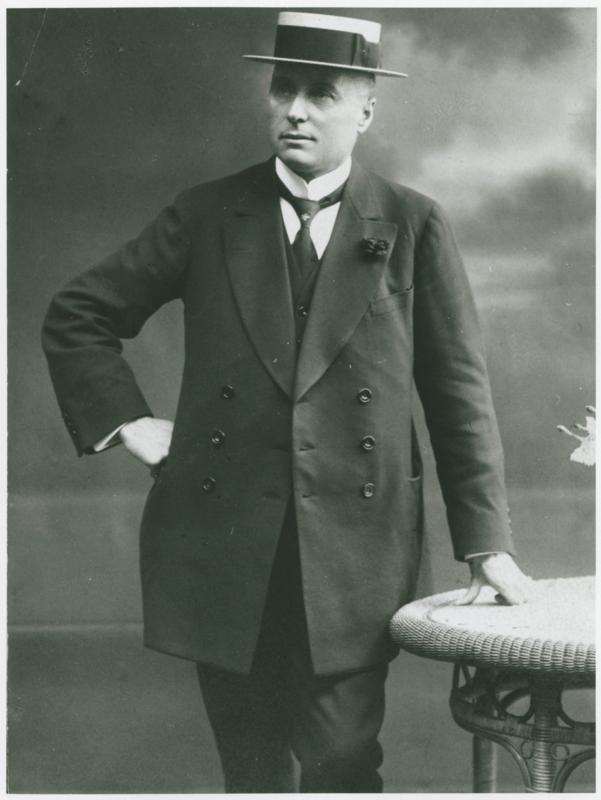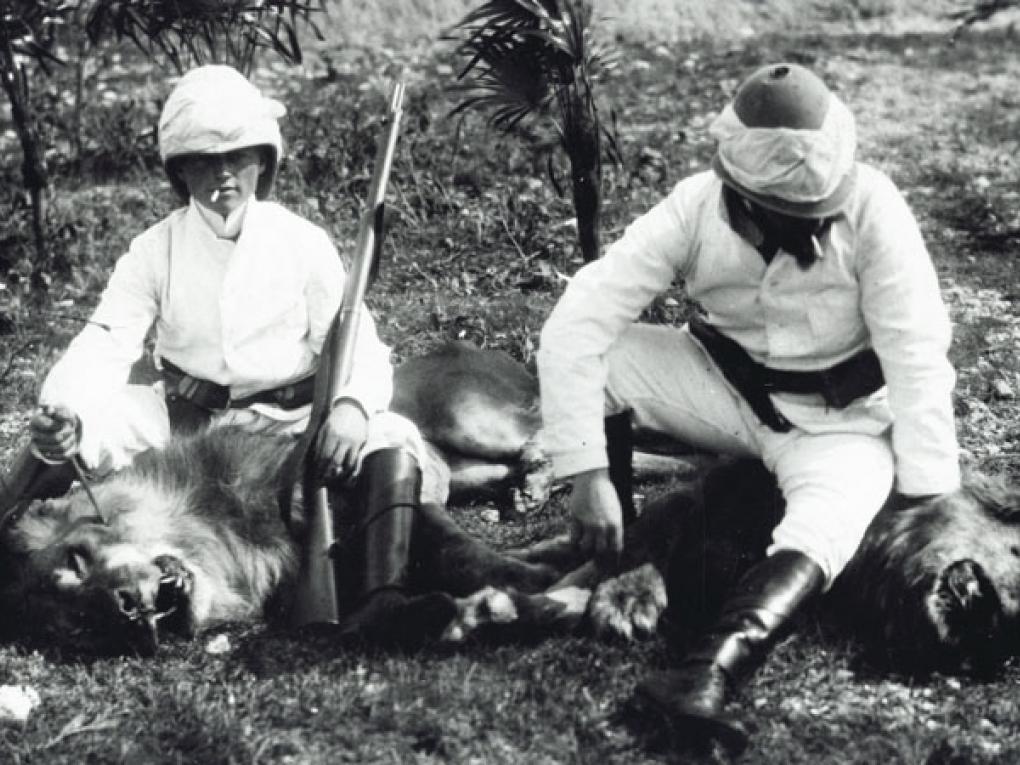
Producer. Born 5 May 1863, died aged 80 on 5 October 1943. Founder of Nordisk Films Kompagni.
Ole Olsen was born in extreme poverty in a small farmhouse in Starreklinte in West Zealand, Denmark. After repeatedly running away from home, he was sent to Flakkebjerg Upbringing Institution. In his younger years, Olsen lived off various small jobs. He occasionally ended up in bad company, which came to cost him a few days in jail for being a con artist. It was only upon becoming a merchant that Olsen began to see progress. Markets, animal shows, and town festivals became his line of work. He toured Denmark, Norway, Sweden, and Germany with “Karavanen” – a tribe of real, wild Africans. It was a huge success. In 1896 he became director of a newly started Tivoli in Malmö, where worked until 1901. It was here that he made his first foray into showing live pictures.
Back in Copenhagen, he opened the Biograf-Theatret cinema at Vimmelskaftet 47 in 1905. The following year, Olsen bought an allotment garden plot in Valby Mose and in 1906 established Nordisk Films Kompagni, which quickly became one of the world’s leading film companies. Just four years after its founding, Nordisk Film had departments in a number of major cities including Vienna, London, Berlin, Paris, and New York, as well as sales agents around the globe. Ole Olsen was at the forefront of the golden age of Danish film in the first half of the 1910s, and helped to turn Valdemar Psilander, Clara Pontoppidan, Betty Nansen, and Gunnar Tolnæs, among others, into international stars.
World War I closed the Danish film industry’s export markets. Most companies had to lock the door, and when Germany nationalised the country’s film industry, Nordisk Film was forced to relinquish all its interests there and lost huge sums of money. In 1922, Ole Olsen had to leave his post as CEO, and two years later he was bought out of the company. He spent the rest of his life on building a large collection of handicrafts such as porcelain, pottery, and silverware, for example.
Ole Olsen was born in extreme poverty in a small farmhouse in Starreklinte in West Zealand, Denmark. After repeatedly running away from home, he was sent to Flakkebjerg Upbringing Institution. In his younger years, Olsen lived off various small jobs. He occasionally ended up in bad company, which came to cost him a few days in jail for being a con artist. It was only upon becoming a merchant that Olsen began to see progress. Markets, animal shows, and town festivals became his line of work. He toured Denmark, Norway, Sweden, and Germany with “Karavanen” – a tribe of real, wild Africans. It was a huge success. In 1896 he became director of a newly started Tivoli in Malmö, where worked until 1901. It was here that he made his first foray into showing live pictures.
Back in Copenhagen, he opened the Biograf-Theatret cinema at Vimmelskaftet 47 in 1905. The following year, Olsen bought an allotment garden plot in Valby Mose and in 1906 established Nordisk Films Kompagni, which quickly became one of the world’s leading film companies. Just four years after its founding, Nordisk Film had departments in a number of major cities including Vienna, London, Berlin, Paris, and New York, as well as sales agents around the globe. Ole Olsen was at the forefront of the golden age of Danish film in the first half of the 1910s, and helped to turn Valdemar Psilander, Clara Pontoppidan, Betty Nansen, and Gunnar Tolnæs, among others, into international stars.
World War I closed the Danish film industry’s export markets. Most companies had to lock the door, and when Germany nationalised the country’s film industry, Nordisk Film was forced to relinquish all its interests there and lost huge sums of money. In 1922, Ole Olsen had to leave his post as CEO, and two years later he was bought out of the company. He spent the rest of his life on building a large collection of handicrafts such as porcelain, pottery, and silverware, for example.
| Title | Year | Function | Category |
|---|---|---|---|
| The Lammefjord damming | 1946 | Appearance | Non-fiction footage |
| The President of Nordisk Film gives a speech | 1936 | Appearance | Non-fiction footage |
| Writer's meeting | 1919 | Appearance | Non-fiction footage |
| A Friend of the People | 1918 | Script | DK/Feature |
| A Trip to Mars | 1918 | Script | DK/Feature |
| Peace On Earth | 1917 | Script | DK/Feature |
| At the Sea Shore | 1909 | Direction, Cinematography | DK/Short fiction |
| Isbjørnejagt | 1907 | Appearance | DK/Short fiction |
| Bonden i København | 1906 | Direction | DK/Short fiction |
| Kong Haakons Kroning i Trondhjem | 1906 | Direction, Cinematography | Non-fiction footage |
| Kong Christian IX's Bisættelse | 1906 | Direction | Non-fiction footage |
| Proklamationen af Kong Frederik VIII | 1906 | Direction | Non-fiction footage |
| A Fisherman's Life in Scandinavia | 1906 | Cinematography | DK/Short fiction |
| Caros Død | 1906 | Cinematography | DK/Short fiction |
